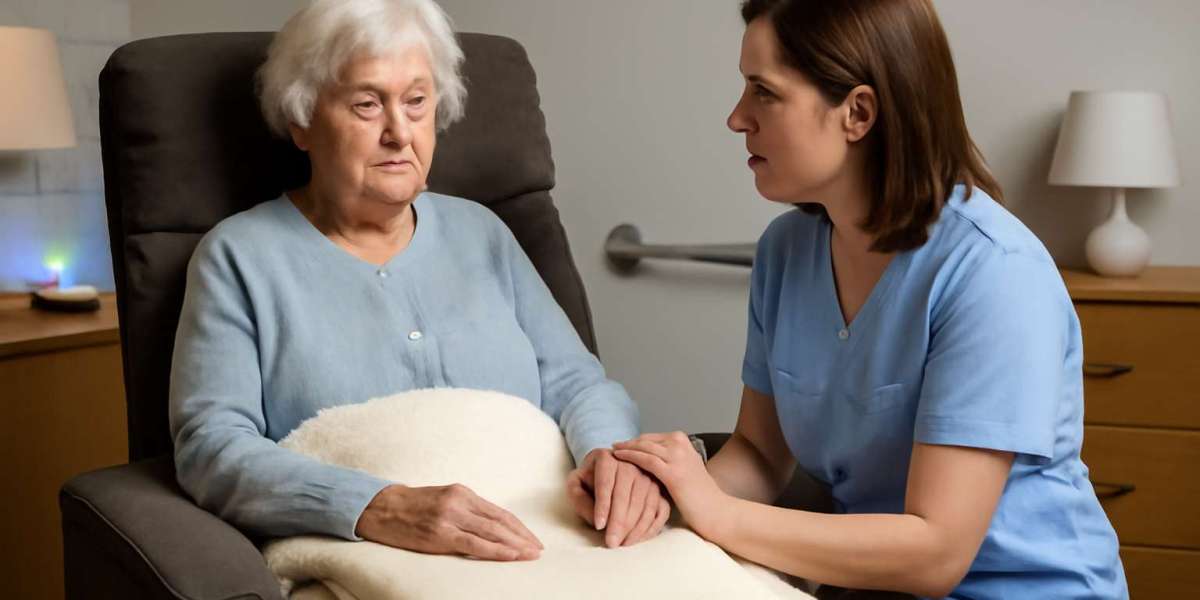Dementia is a condition that affects millions of people worldwide, causing a range of cognitive, emotional, and physical challenges. As the disease progresses, individuals experience different symptoms at each stage, requiring tailored care and support. Choosing the right dementia care products can significantly improve quality of life for both patients and caregivers.
This guide explores how to select the best dementia care products depending on the stage of the disease. By understanding the varying needs of dementia patients, caregivers can make informed decisions that enhance comfort, safety, and independence.
Stage 1: Early-Stage Dementia
In the early stages of dementia, individuals may experience mild memory loss, confusion, and difficulty with familiar tasks. At this stage, maintaining independence is important, and products that help with everyday activities can provide the support needed to stay active and engaged.
Recommended Dementia Care Products for Early-Stage
Memory Aids and Reminder Devices
Simple memory aids like reminder apps, calendars, and digital clocks with large displays can help individuals stay on track with appointments and daily tasks. Specialized reminder devices, such as medication timers, can prompt individuals to take their medications on time.Organizational Tools
A well-organized environment can reduce confusion. Using labeled storage bins, color-coded systems for clothing or household items, and task-specific planners can help dementia patients maintain their routines.Adaptive Kitchenware
The right tools in the kitchen can make cooking and eating easier. Adaptive cups with handles or built-in straws, utensils with larger grips, and non-slip cutting boards can make meal preparation and eating less frustrating.Simple Technology
Smartphones and tablets with easy-to-use interfaces or customized apps designed for individuals with dementia can provide entertainment, memory exercises, and communication tools. Simple devices that facilitate calls to family members or caregivers also offer reassurance.
Stage 2: Middle-Stage Dementia
As dementia progresses into the middle stage, symptoms become more noticeable. Memory loss worsens, and patients may need more assistance with daily activities. During this stage, safety becomes a primary concern, as individuals may wander, experience mood swings, or have difficulty with tasks like dressing and eating.
Recommended Dementia Care Products for Middle-Stage
GPS Trackers and Monitoring Devices
For individuals prone to wandering, GPS trackers that attach to clothing or accessories, such as bracelets or shoes, can provide peace of mind to caregivers. These devices track movement in real-time and help ensure that individuals are safe.Memory Foam Cushions and Supportive Furniture
Comfortable and supportive furniture becomes increasingly important. Memory foam cushions or seats with extra support can help dementia patients stay comfortable, especially if they have difficulty sitting for long periods. Recliners or chairs that assist with standing up may also be beneficial.Personalized Clothing
Personalized clothing items, such as shirts with large, clear labels or adaptive clothing with easy-to-use fasteners, can make dressing easier. These items reduce frustration for both the patient and caregiver while promoting independence.Dementia-Friendly Lighting
Poor lighting can contribute to confusion and anxiety. Dementia-friendly lighting products, such as nightlights that automatically turn on and off or motion-activated lights, can help individuals feel more secure, especially during the night.Medication Management Systems
As patients need more assistance with managing their medications, medication management systems with compartments for different doses and times can ensure that the right medications are taken at the right times. Some systems also include alarms or automatic dispensers.
Stage 3: Late-Stage Dementia
In the late stages of dementia, individuals are often unable to communicate verbally and may require full-time assistance with all activities of daily living. At this point, dementia care products are focused on comfort, safety, and minimizing distress.
Recommended Dementia Care Products for Late-Stage
Personal Care and Hygiene Products
Maintaining personal hygiene can become increasingly challenging, so products designed to assist with bathing, grooming, and toileting are essential. Bathing aids such as shower chairs or handheld showerheads make personal care easier. Non-slip bath mats and incontinence products also enhance safety and comfort.Pressure Relief Mattresses
Patients who are bedridden or spend a lot of time sitting need pressure relief to prevent sores. Special mattresses and seat cushions designed to reduce pressure can help maintain skin health and prevent discomfort.Soft Touch Sensory Products
Sensory products, such as soft blankets, weighted clothing, or gentle toys, can provide comfort and reduce agitation in late-stage dementia patients. Sensory stimulation through touch or sound, such as a gentle music player or stuffed animals, can offer soothing effects.Feeding Assistance Products
As swallowing and feeding become more difficult, specialized feeding products like adaptive plates, utensils, and bibs designed to minimize spills are helpful. Additionally, cups with built-in straws or non-spill lids can make drinking easier.Safe Environment Modifications
At this stage, it's crucial to create a safe and comfortable living environment. Removing tripping hazards, installing grab bars in bathrooms, and using non-slip rugs can prevent falls. Adding cushioned flooring or wall padding can reduce the risk of injury from falls.
How to Choose the Right Products
Choosing the right dementia care products requires careful consideration of the patient's needs and preferences. Here are a few tips to guide your choices:
Assess the Patient’s Needs
Before purchasing any products, assess the individual’s specific needs and abilities. What tasks are most difficult? What products will make their life easier and more comfortable? Understanding their routine and challenges will help you make informed decisions.Consider the Stage of Dementia
Different stages of dementia require different products. Early-stage patients may benefit from memory aids and organizational tools, while middle and late-stage patients may need more specialized products for safety, comfort, and care.Consult with Healthcare Providers
Healthcare providers, such as doctors, nurses, or occupational therapists, can provide valuable insight into the products that would best suit the patient’s needs. They can help guide you in selecting safe, effective products for care.Prioritize Safety and Comfort
Safety and comfort are paramount. Choose Elderly Care Products that reduce the risk of injury and promote well-being, such as fall prevention devices, pressure relief items, and easy-to-use tools. Avoid items that could cause frustration or confusion.
Conclusion
Choosing the right dementia care products can make a significant difference in the quality of life for individuals living with dementia. As the disease progresses, different products will be needed to address changing needs, from memory aids and safety tools to personal care and comfort products. By understanding the stages of dementia and selecting appropriate products, caregivers can provide the best possible care and ensure that their loved ones remain as comfortable and independent as possible for as long as possible.



